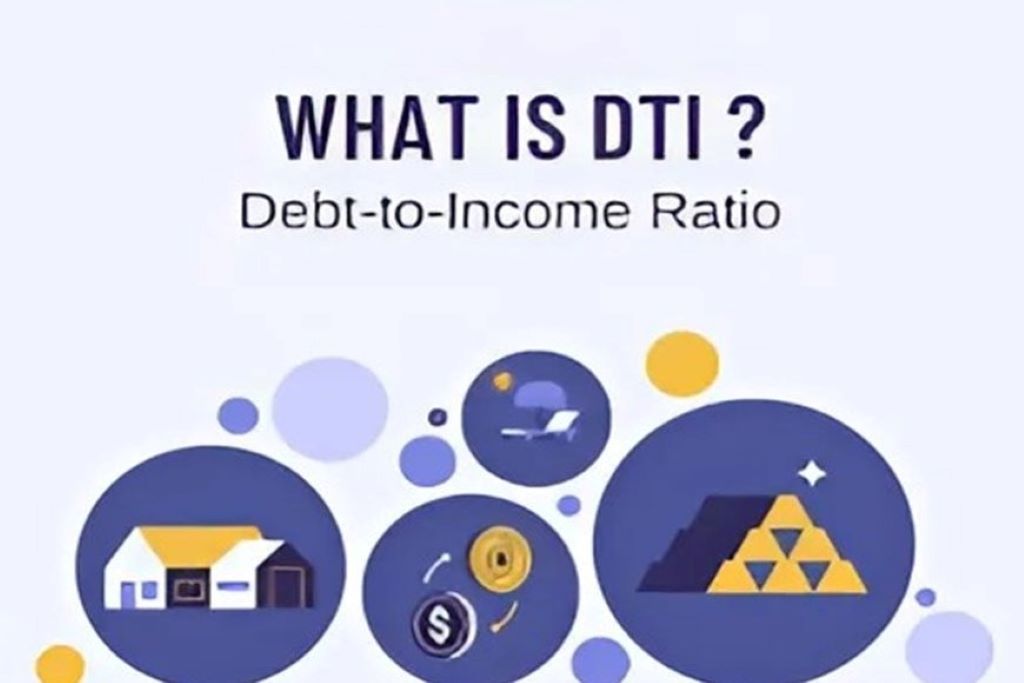
How to Play “Sweet Home Alabama” on Guitar: A Beginner’s Guide
December 15, 2024
Tired of Life on the Road? Discover Truck Driving Jobs in Alabama with Home Time Every Night!
December 15, 2024Navigating the Alabama Home Mortgage Landscape: A Comprehensive Guide
For many, the dream of homeownership starts with finding the perfect property. But the journey truly begins with securing the right mortgage. In the heart of the South, Alabama offers a diverse housing market with unique opportunities and challenges for those seeking a home loan. This comprehensive guide will equip you with the knowledge needed to navigate the Alabama home mortgage landscape, from understanding the basics to exploring specific loan programs and finding the perfect lender for your needs.
Table of Contents
ToggleUnderstanding the Basics of Alabama Home Mortgages
A mortgage is essentially a loan specifically designed for purchasing a home. This loan is secured by the property itself, meaning if you fail to make your payments, the lender has the right to seize the home through a process known as foreclosure. In Alabama, as in other states, mortgages come in various forms, each with its own set of terms, interest rates, and qualification requirements.
The principal components of any mortgage include the principal amount (the amount borrowed), the interest rate (the cost of borrowing), and the loan term (the repayment period, typically 15 or 30 years). Understanding these elements is crucial when comparing different loan options and choosing the one that aligns best with your financial situation and homeownership goals.
Exploring Common Mortgage Types in Alabama
Conventional Loans:
These are the most common type of mortgage in Alabama and across the United States. They are not backed by the government and typically require a higher credit score and down payment compared to government-backed loans. Conventional loans often offer competitive interest rates and flexible terms, making them a popular choice for borrowers with strong financial profiles.
FHA Loans:
Insured by the Federal Housing Administration (FHA), these loans are designed to make homeownership more accessible to borrowers with lower credit scores or smaller down payments. FHA loans have specific requirements, including mortgage insurance premiums, but they can be a valuable option for first-time homebuyers or those with limited financial resources.
VA Loans:
Guaranteed by the U.S. Department of Veterans Affairs, VA loans offer significant benefits to eligible veterans, active-duty service members, and surviving spouses. These loans often come with no down payment requirement, competitive interest rates, and relaxed credit score guidelines, making them a powerful tool for those who have served our country.
USDA Loans:
Offered by the U.S. Department of Agriculture, USDA loans aim to promote homeownership in designated rural areas of Alabama. These loans often come with no down payment requirement and flexible credit guidelines, making them an attractive option for those seeking to purchase a home in eligible rural communities.
Factors Influencing Your Mortgage Rate in Alabama
Several factors contribute to determining your mortgage rate in Alabama. Understanding these factors can help you make informed decisions to secure the most favorable terms.
Credit Score:
Your credit score is a significant factor in determining your interest rate. A higher credit score generally translates to lower interest rates and better loan terms. It’s crucial to maintain a good credit history and address any credit issues before applying for a mortgage.
Down Payment:
The amount of your down payment also affects your interest rate. A larger down payment reduces the lender’s risk and often leads to lower interest rates. Conversely, a smaller down payment may result in higher interest rates.
Debt-to-Income Ratio (DTI):
Your DTI compares your monthly debt payments to your gross monthly income. Lenders use this ratio to assess your ability to manage 1 your mortgage payments along with other financial obligations. A lower DTI generally indicates lower risk and can lead to more favorable loan terms.
Loan Term:
The length of your loan term also influences your interest rate. Typically, shorter-term loans (e.g., 15 years) have lower interest rates than longer-term loans (e.g., 30 years). However, shorter-term loans come with higher monthly payments.
Interest Rate Type:
Mortgages come with different interest rate types, including fixed-rate and adjustable-rate mortgages (ARMs). Fixed-rate mortgages maintain the same interest rate throughout the loan term, providing stability and predictability. ARMs have interest rates that can fluctuate over time, potentially leading to lower initial payments but also carrying the risk of increased payments in the future.
The Alabama Home Mortgage Process: A Step-by-Step Guide
-
Pre-approval:
Before you start house hunting, getting pre-approved for a mortgage is essential. This involves providing a lender with your financial information, such as income, assets, and credit history. The lender will then assess your qualifications and provide you with a pre-approval letter, which indicates the loan amount you can potentially borrow. This letter strengthens your position as a buyer when making an offer on a home.
-
House Hunting:
With your pre-approval in hand, you can confidently start searching for your dream home in Alabama. Work with a real estate agent to find properties that meet your needs and budget.
-
Loan Application:
Once you’ve found the perfect home and your offer is accepted, it’s time to formally apply for a mortgage. You’ll need to provide the lender with detailed financial documentation, including pay stubs, bank statements, tax returns, and other relevant information.
-
Loan Processing and Underwriting:
The lender will then process your application and underwrite the loan. This involves verifying your financial information, appraising the property, and assessing the risk associated with the loan.
-
Closing:
Once the loan is approved, you’ll proceed to the closing process. This involves signing the loan documents, paying closing costs, and finalizing the transfer of ownership. Congratulations, you’re now a homeowner in Alabama!
Finding the Right Mortgage Lender in Alabama
Choosing the right mortgage lender is crucial for a smooth and successful home buying experience. Here are some key factors to consider when selecting a lender:
Reputation and Experience:
Look for lenders with a strong reputation and extensive experience in the Alabama mortgage market. Read online reviews, seek recommendations from friends and family, and research the lender’s background and credentials.
Interest Rates and Fees:
Compare interest rates and fees from multiple lenders to ensure you’re getting the most competitive terms. Don’t hesitate to negotiate with lenders to secure the best possible deal.
Customer Service:
Choose a lender that offers excellent customer service and is responsive to your needs. You want a lender who can guide you through the process, answer your questions, and address any concerns you may have.
Loan Products:
Ensure the lender offers a variety of loan products that suit your specific needs and financial situation. Whether you’re a first-time homebuyer, a veteran, or looking for a specific loan type, choose a lender with options that align with your goals.
Alabama Home Mortgage FAQs
-
What is the minimum credit score required for a mortgage in Alabama?
The minimum credit score varies depending on the loan type and lender. Conventional loans generally require higher credit scores (often 620 or above), while FHA loans may accept scores as low as 580 with a larger down payment.
-
How much down payment do I need for a house in Alabama?
The down payment requirement also varies depending on the loan type. Conventional loans may require a down payment of 3% to 20% or more, while FHA loans allow for down payments as low as 3.5%. VA and USDA loans may offer no down payment options for eligible borrowers.
-
How do I find first-time homebuyer programs in Alabama?
Alabama offers various first-time homebuyer programs through the Alabama Housing Finance Authority (AHFA). These programs provide assistance with down payments, closing costs, and other expenses. You can find information about these programs on the AHFA website or by contacting a participating lender.
-
What are the closing costs involved in buying a house in Alabama?
Closing costs typically include appraisal fees, loan origination fees, title insurance, property taxes, and other expenses. These costs can vary depending on the loan amount and the specific transaction.
-
How can I improve my chances of getting approved for a mortgage?
Improving your credit score, saving for a larger down payment, reducing your debt-to-income ratio, and maintaining stable employment can all improve your chances of getting approved for a mortgage.
-
What are the current mortgage rates in Alabama?
Mortgage rates fluctuate constantly. You can find current mortgage rates by contacting lenders, checking online resources like Bankrate or NerdWallet, or consulting with a mortgage broker.
-
Can I get a mortgage with bad credit in Alabama?
While it may be more challenging, it’s still possible to get a mortgage with bad credit in Alabama. FHA loans, VA loans, and some specialized programs may offer options for borrowers with lower credit scores.
-
What is private mortgage insurance (PMI)?
PMI is typically required for conventional loans with a down payment of less than 20%. It protects the lender in case of borrower default. Once you reach 20% equity in your home, you can usually request to cancel PMI.
-
What are discount points?
Discount points are fees paid upfront to lower your interest rate. One discount point typically costs 1% of the loan amount and can reduce your interest rate by about 0.25%.
-
What is an escrow account?
An escrow account is a separate account held by the lender to pay for property taxes, homeowners insurance, and other related expenses. Your monthly mortgage payment will include an escrow portion to fund this account.
You Might Enjoy: Diving Deep into Stanchions: The Unsung Heroes of MTB Suspension
Conclusion
Navigating the Alabama home mortgage landscape can seem daunting, but with the right knowledge and preparation, you can successfully secure the financing needed to achieve your homeownership dreams. By understanding the different loan types, factors influencing your mortgage rate, and the steps involved in the mortgage process, you can make informed decisions and find the perfect mortgage for your unique needs. Remember to shop around for the best lender, compare rates and fees, and don’t hesitate to ask questions along the way. With careful planning and guidance, you can confidently embark on your journey to homeownership in the beautiful state of Alabama.




